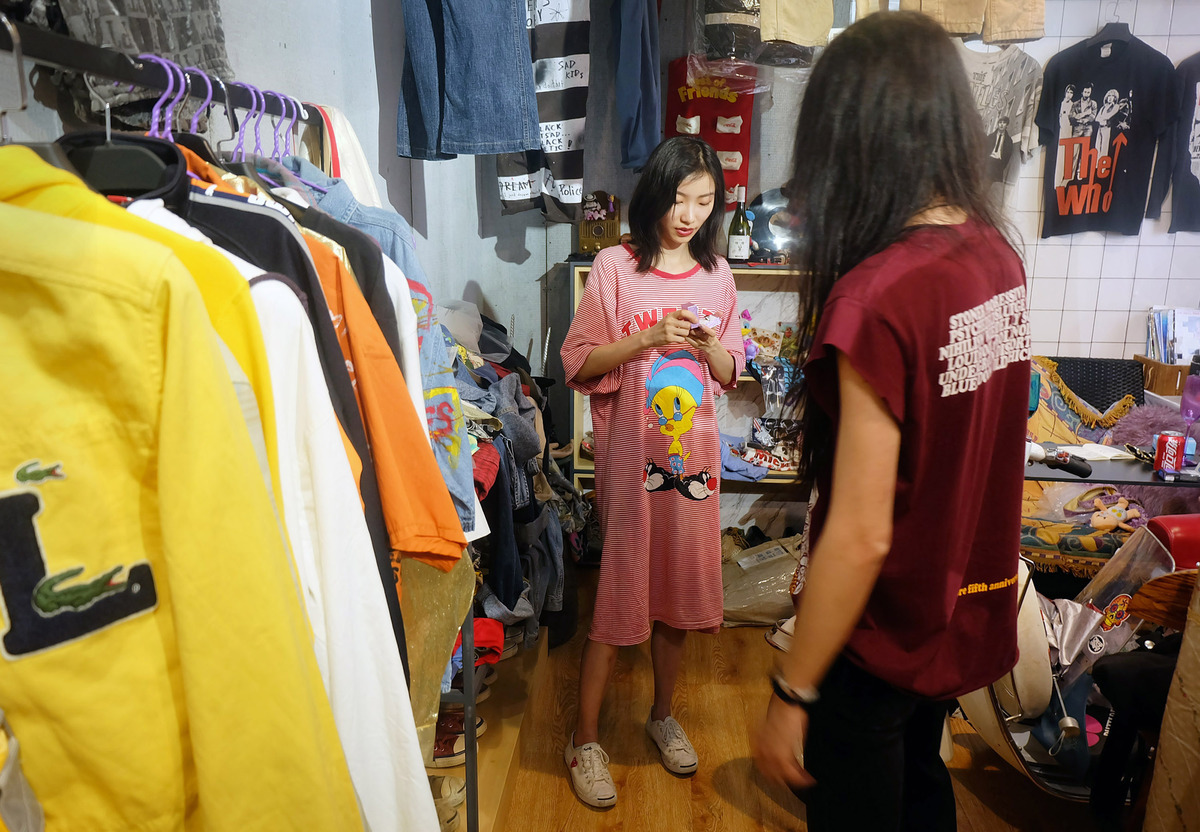Old clothes get new life on platform


After six years of rapid development, a Shanghai-based online platform dedicated to recycling secondhand clothes and stuffed toys has become China's largest player in its segment and attracts millions of individuals participating in recycling.
Ma Yun, founder of the platform Feimayi-"flying ant" in Chinese-said that China's current comprehensive utilization rate of unwanted clothes is less than 10 percent, and his ambition is to help the figure rise to 20 percent or 30 percent in the near future.
"Our network has covered more than 300 cities nationwide," said Ma during an exclusive interview with China Daily in late May.
"We anticipate that the public will participate in the recycling of clothing to help with environmental protection and allow every piece of used clothing to unlock its maximum value," Ma said.
China is the world's largest producer and consumer of clothing. The China Cotton Textile Association said more than 26 million metric tons of unwanted textiles are accumulated in the country each year, and the comprehensive utilization rate is less than 10 percent.
Last year, China pledged at the United Nations General Assembly that it would peak carbon emissions by 2030 and achieve carbon neutrality by 2060.
According to the China Beijing Green Exchange, China can reduce 3.6 kilograms of carbon emissions by recycling 1 kg of unwanted clothing, and for each laptop computer recycled, nearly 2 kg of carbon emissions can be avoided.
"Every day, hundreds of thousands of pieces of secondhand clothing enter into our recycling platform and around 10,000 individuals use the platform for recycling now. Our team believes that it would be a cause beneficial to the society over the long run," said Ma, who was born in the Ningxia Hui autonomous region in 1991.
He said his entrepreneurial idea for the platform was conceived during his last semester at university when he noticed classmates' unwanted clothes would pile up in dorm hallways.
Ma, who majored in industrial engineering at Shanghai Polytechnic University and had internship experience at internet-based companies, began researching how to better manage unwanted clothing.
He established Feimayi in 2015. The company's initial business was to recover used clothes in residential compounds. Those with clothes and stuffed toys that they no longer need can have their items picked up at their homes.
After sorting, cleaning and disinfecting, the items will be dealt with in three ways: provided to people in disadvantaged domestic regions for free; made into recycled fabrics; or exported to countries in need.
Ma said all kinds of secondhand clothing and stuffed toys can be made into recycled materials through reprocessing.
Such recycled material-based finished products include insulated filler for jackets, upholstery stuffing, seat cushions and automotive interiors.
The platform began to undergo rapid growth in the latter half of 2016 and its business volume grew by nearly 40 percent each year over the past several years. Ma said the company first became profitable in 2017.
He said that the high growth comes from people's rising awareness of recycling and also overambitious consumerism, which makes people buy more than they really need.
About 80 percent of users of the platform are women, who play a bigger role in household management and organization, Ma said.
Typical users are between 25 and 40 years of age with roughly two-thirds from first- and second-tier cities, he added.
Physical boxes where residents can place secondhand clothing have existed in neighborhoods in Shanghai for years.
Ma said Feimayi tends to be more popular as the company regularly announces how they deal with recycled items, distributing them via three channels to users.
Secondhand trading platforms do not necessarily work for recycling clothes for environmental protection, he said, as people in some countries generally do not accept used clothing.




































